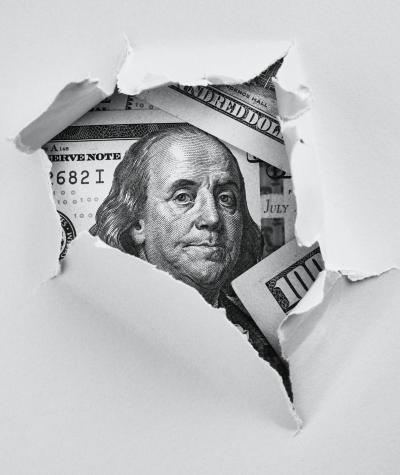Transparency about who is spending money to influence our government is critical to the functioning of our democracy. But legislators in North Carolina are now seeking to undo critical transparency requirements in an effort to shroud political spending — particularly the funding of electoral litigation expenses — in secrecy.
Lawmakers should reject these attacks on transparency and uphold voters’ right to know who is spending big money to influence our elections and our government.
Read Campaign Legal Center’s full letter to Governor Stein’s office here.
The Importance of Transparency Laws in North Carolina
When North Carolina Judge Jefferson Griffin launched a cynical — and ultimately unsuccessful — attempt to wrongly throw out the votes of more than 65,000 North Carolina voters in the state’s 2024 Supreme Court election, the public knew who was funding his legal challenge because of important transparency laws.
North Carolina law currently requires state candidates or officials to establish a legal expense fund when those individuals raise funds for their litigation costs. Under the law, the candidate or official must report the identities of donors to their legal expense fund.
This transparency was critical to ensuring a fair process as the courts in North Carolina considered Judge Griffin’s lawsuit. Disclosure reports revealed that a judge on the North Carolina Court of Appeals, which would rule on appeals in the case, had donated $5,000 to Judge Griffin’s legal expense fund.
Although the judge did not end up on the panel considering the appeal, the judge’s donations presented an obvious risk for the appearance of bias if he were to rule on Judge Griffin’s legal challenge, raising serious questions about the need for recusal.
How S.B. 416 Threatens Transparency
The North Carolina Legislature’s proposed budget bill introduced this spring includes an egregious anti-transparency proposal that would make it nearly impossible for voters to learn of similar conflicts of interest going forward, potentially undermining the public’s confidence in the fairness of their elections and state government more generally.
These provisions would — among other problems — allow candidates and officials to hide the donors who fund their electoral litigation expenses. The proposal would create a void that could both conceal conflicts of interest and allow wealthy special interests to bankroll a candidate’s or official’s litigation expenses entirely in secret — creating obvious risks for corruption in our political process.
This specific proposal is part of sweeping anti-transparency provisions in the budget bill, largely borrowed from prior bills in North Carolina, that would generally prevent state and local officials from requiring any nonprofit organization to disclose information about their members or donors, including so-called “social welfare” organizations and trade associations that spend big money on politics.
Although existing state campaign finance disclosures would be exempt from mandatory secrecy requirements, North Carolina’s campaign finance law is already riddled with holes that allow big independent spenders to conceal their influence in the state’s elections. Mandating broad secrecy for nonprofit organizations only allows the problem to proliferate.
North Carolina has been here before: When the state Legislature attempted to pass broad donor secrecy requirements in 2021, Campaign Legal Center (CLC) submitted a letter to then-Governor Cooper urging him to veto the legislation, which he ultimately did. In doing so, Governor Cooper noted, “This legislation is unnecessary and may limit transparency with political contributions.”
This proposal raises those same concerns and also creates new ones by ending transparency requirements for legal expense funds. As the example of Judge Griffin’s legal challenge makes crystal clear, transparency for candidate legal expense funds is essential to our democratic process.
Preserving Fair, Representative Elections for All Americans
These anti-transparency efforts are part of a broader attack on transparency by wealthy special interests seeking to hide their influence on our political system.
At a time when the public is demanding more transparency for political spending, mandating donor secrecy goes in the wrong direction. In CLC’s national survey examining public support for disclosure of political contributions, more than four out of five Americans — including 85% of Democrats, 83% of Independents and 81% of Republicans — supported public disclosure requirements.
Voters have a right to know which wealthy special interests are spending big money to influence our government. Instead of pushing laws to hide the influence of wealthy donors, legislators should be working to provide voters more transparency about money in our elections, as well as a government that is accountable to voters and not just wealthy special interests.
CLC will continue to fight for voters across the country, including through our state and local advocacy efforts. To stay up to date with our latest actions, sign up for our newsletter.

